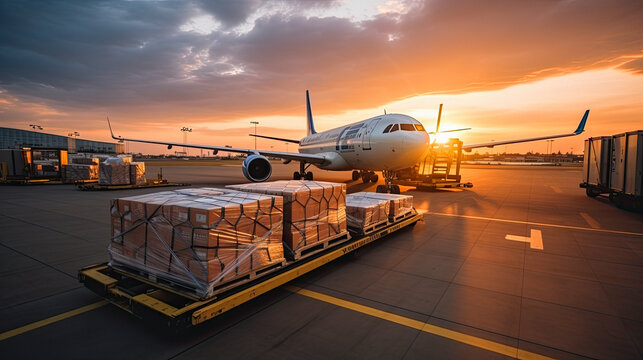- By TOP CHINA FREIGHT
- September 27, 2025
- Air Freight, Shipping
Table of Contents
Air freight rates from China to Canada are a key factor for businesses engaged in international trade. With changing logistics trends, fluctuating fuel prices, and customs regulations, understanding costs and transit times is essential to streamline your supply chain. This guide provides actionable insights, pricing comparisons, and strategies to optimize your shipping process efficiently.

What factors influence air freight rates from China to Canada?
Several elements impact air freight pricing. Airlines calculate charges based on actual weight or volumetric weight, whichever is higher. Additional surcharges, such as fuel, security, and handling fees, can further increase costs. Seasonal fluctuations, like holiday periods and peak manufacturing months, often drive rates higher.
Cargo type is another crucial factor. High-value goods, oversized shipments, and hazardous materials require special handling, increasing expenses. Direct flights typically cost more but save time, while indirect flights reduce costs but extend delivery.
| Factor | Impact on Rates |
|---|---|
| Cargo weight/volume | Heavier or bulkier shipments cost more |
| Flight availability | Direct flights are faster but pricier |
| Seasonal demand | Rates rise during peak periods |
| Special cargo handling | Hazardous/valuable goods add surcharges |
| Fuel & security fees | Fixed airline charges affect total cost |
How much do air freight rates from China to Canada cost?

Rates generally range between $5–$10 per kilogram, depending on route, service type, and cargo. Express shipments are costlier but offer faster transit times, while standard services provide a balance between speed and cost.
| Cargo Type | Estimated Cost per KG | Transit Time |
|---|---|---|
| Standard Cargo | $5 – $7 | 5 – 8 days |
| Express Shipments | $7 – $10 | 3 – 5 days |
| Special Cargo | $8 – $12+ | 5 – 10 days |
Air freight rates can fluctuate due to fuel price changes, airline capacity, and seasonal peaks. Partnering with freight forwarders or negotiating long-term contracts can reduce overall shipping costs.
Why choose air freight over sea or rail freight?
Air freight is the fastest international shipping method. While sea freight from China to Canada may take 30–45 days, air freight delivers in under a week. Rail freight, where available, offers a compromise at 15–25 days. Air transport is ideal for high-value, perishable, or time-sensitive goods.
Comparison of shipping methods:
| Method | Cost per KG | Transit Time | Best For |
|---|---|---|---|
| Air Freight | $5 – $10 | 5 – 8 days | Electronics, urgent goods |
| Sea Freight | $0.5 – $3 | 30 – 45 days | Bulk, low-value cargo |
| Rail Freight | $2 – $5 | 15 – 25 days | Mid-value goods |
Air freight ensures reliability, especially for businesses using just-in-time inventory models.
What documents are required for air shipments to Canada?

Accurate documentation is vital for smooth customs clearance and compliance. Key documents include:
| Document | Purpose |
|---|---|
| Commercial Invoice | Declares the value of goods |
| Packing List | Details contents and packaging |
| Airway Bill | Contract of carriage |
| Import License (if needed) | For regulated goods |
| Certificate of Origin | Confirms product origin |
| Customs Declaration | Required for clearance |
Ensuring all documents are accurate minimizes delays, penalties, and extra costs.
How long does air freight from China to Canada take?
Transit times depend on the origin city in China and the destination in Canada. Direct flights from major Chinese hubs like Shanghai, Shenzhen, or Guangzhou typically take 5–8 days. Delays may occur due to customs inspections or peak shipping seasons.
| Origin City | Destination Canada | Transit Time |
|---|---|---|
| Shanghai | Toronto | 5 – 7 days |
| Guangzhou | Vancouver | 6 – 8 days |
| Shenzhen | Montreal | 5 – 7 days |
| Beijing | Calgary | 6 – 8 days |
Planning ahead ensures consistent supply chain operations and reduces the risk of stockouts.
What are the pros and cons of air freight?
Air freight is fast and reliable but comes at a higher cost compared to sea or rail. Businesses must balance urgency with expense.
| Pros | Cons |
|---|---|
| Fastest shipping method | Higher cost per kilogram |
| High reliability | Limited cargo capacity |
| Suitable for perishable goods | Environmental impact |
| Global connectivity | Restrictions on hazardous goods |
Air freight is particularly suitable for high-value or urgent shipments, maintaining delivery commitments efficiently.
How can businesses reduce air freight costs from China to Canada?
Cost-saving strategies include shipment consolidation, advanced booking, and optimizing packaging to reduce volumetric weight. Indirect routes may reduce cost slightly but extend transit times. Collaborating with freight forwarders allows access to negotiated rates and professional customs handling.
Cost optimization tips:
- Consolidate shipments to reduce per-kg costs.
- Avoid peak-season shipments to minimize surcharges.
- Optimize packaging for maximum space efficiency.
- Use hybrid solutions, combining air and sea for different cargo types.
Effective planning significantly reduces logistics costs while maintaining delivery reliability.
Case Study: Reducing air freight costs for a Canadian importer

A Canadian electronics retailer needed to import high-demand gadgets from Shenzhen before the holiday season. Sea freight was too slow, and express couriers were expensive. By consolidating shipments with a freight forwarder, the retailer reduced per-kg costs from $9.00 to $6.20, with deliveries completed in six days. This highlights how strategic planning and forwarder partnerships optimize air freight rates while ensuring timely delivery.
Should businesses hire a freight forwarder for Canadian imports?
Freight forwarders simplify the entire shipping process, including bookings, documentation, customs clearance, and delivery. They provide access to discounted rates, offer insurance options, and help businesses remain compliant with Canadian import regulations. Outsourcing logistics is particularly beneficial for small and medium-sized enterprises.
Conclusion
Air freight rates from China to Canada fluctuate due to cargo type, weight, route, season, and service type. While more expensive than sea or rail, air freight offers speed, reliability, and reduced risk, making it ideal for urgent or high-value shipments. Businesses can optimize costs by working with freight forwarders, consolidating shipments, and strategically planning deliveries. Understanding rates, transit times, and documentation requirements ensures smoother supply chain management and competitive advantage in Canada.
Need a Shipping Quote?
If you want expert guidance and peace of mind, our team is ready to assist.
TJ China Freight offers tailored solutions to help businesses of all sizes ship more reliably from China.

FAQ
Q1:What factors affect air freight rates from China to Canada?
Rates are influenced by weight, volume, cargo type, route, season, and airline surcharges.
Q2:Can I ship hazardous materials by air freight?
Yes, but airlines require special handling and additional documentation.
Q3:How long does standard air freight take to Canada?
Transit typically takes 5–8 days depending on origin, destination, and customs procedures.
Q4:Are customs duties included in air freight rates?
No, duties and taxes are separate and must be accounted for by the importer.
Q5:Is cargo insurance necessary?
Insurance is recommended to protect against potential loss or damage.
